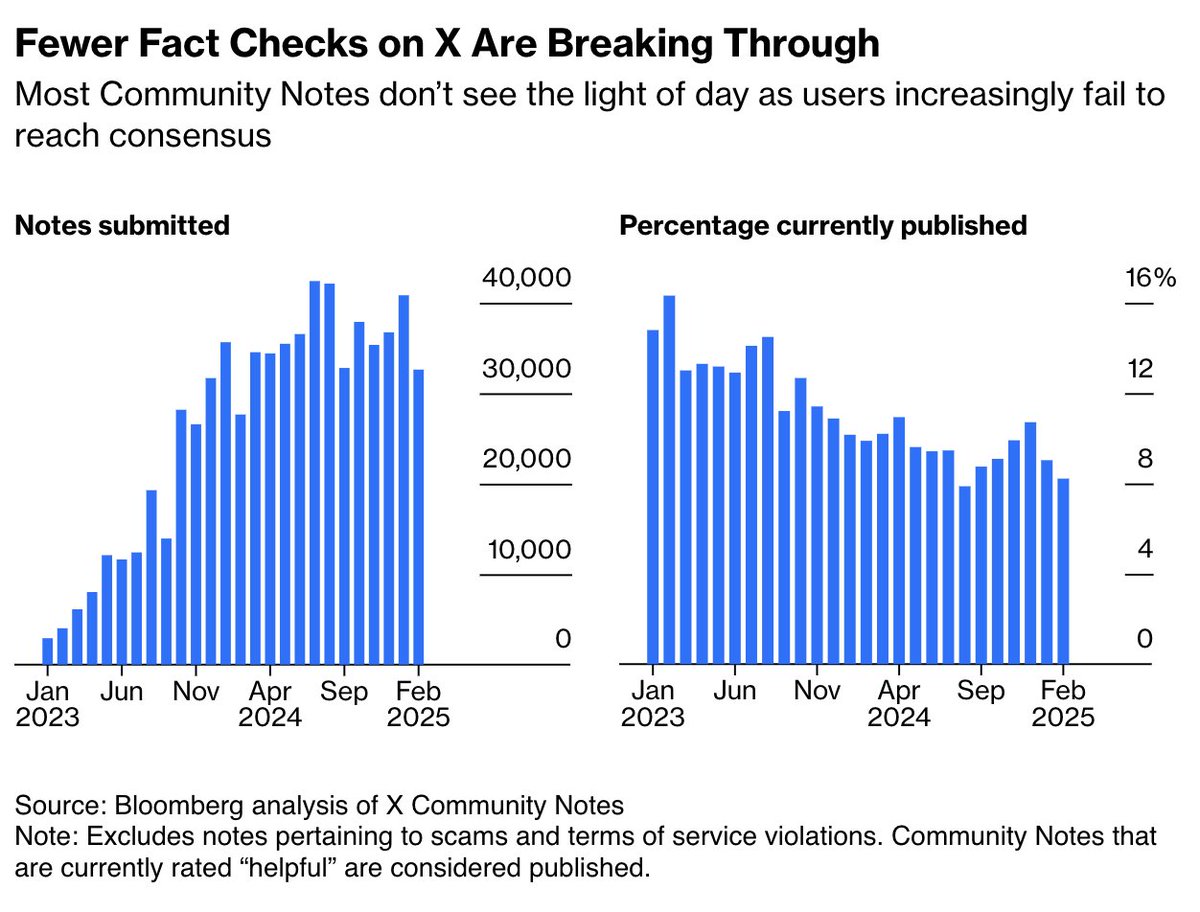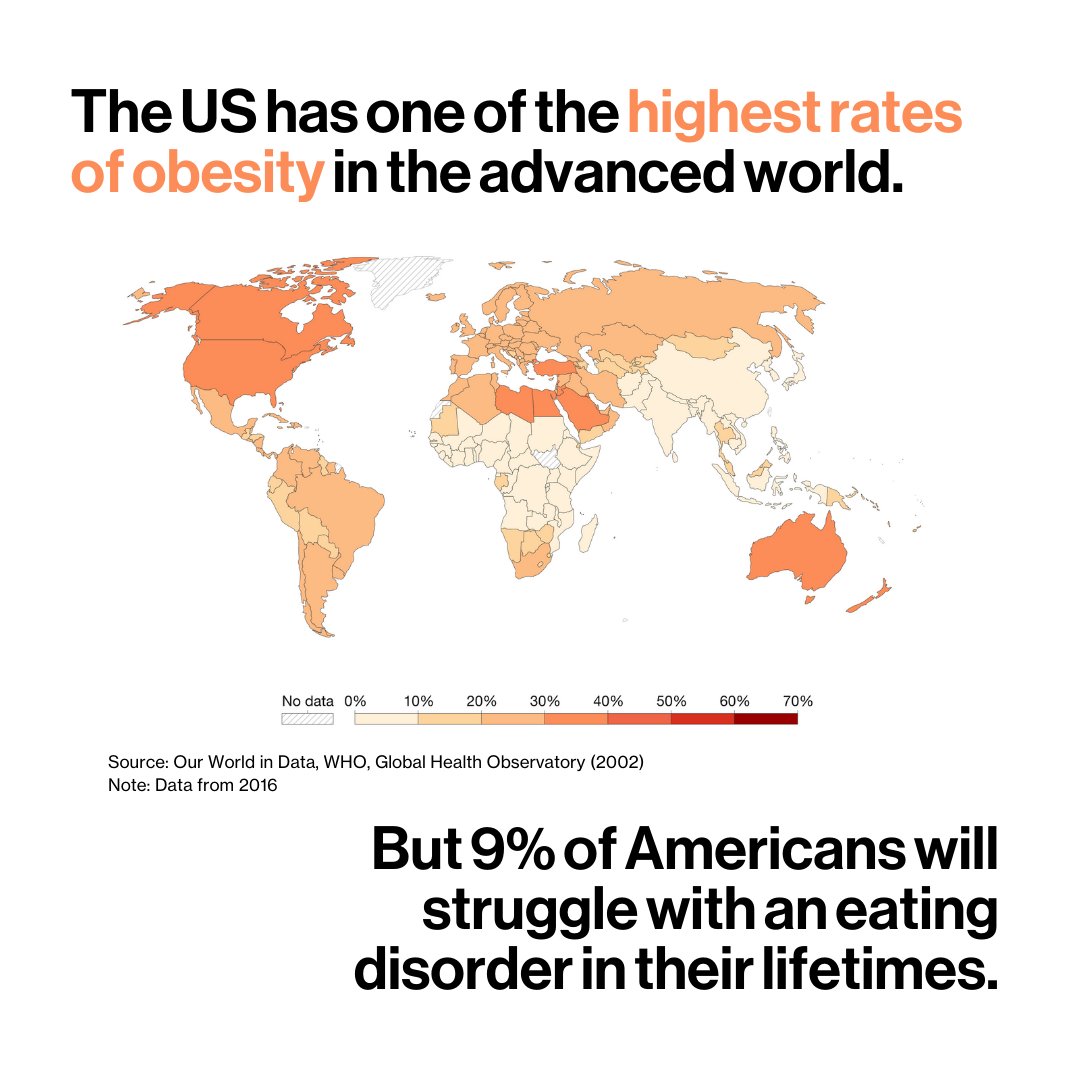By now, we’ve all heard about the gender gaps in pay and wealth.
But what’s not often spoken about is the ambition penalty, which punishes women who try to close these gaps trib.al/5fl82a0
But what’s not often spoken about is the ambition penalty, which punishes women who try to close these gaps trib.al/5fl82a0
On average, for every $1 earned and owned by a man, women in the U.S.:
💵 Earn $0.82
💵 Own $0.32
The disparities are even wider for women of color trib.al/5fl82a0
💵 Earn $0.82
💵 Own $0.32
The disparities are even wider for women of color trib.al/5fl82a0

Women themselves tend to be blamed for these gaps. These are examples of real headlines:
“Women don’t pursue high paying jobs”
“Women drop out of the workforce”
“Women let their partners manage their money”
“Women don’t invest” trib.al/5fl82a0
“Women don’t pursue high paying jobs”
“Women drop out of the workforce”
“Women let their partners manage their money”
“Women don’t invest” trib.al/5fl82a0

But when they try and close them, they experience what @stefanieoconnel calls the “ambition penalty” — the costs women face when asking for more.
Understanding it is critical for tackling gender inequality when it comes to money twitter.com/i/broadcasts/1…
Understanding it is critical for tackling gender inequality when it comes to money twitter.com/i/broadcasts/1…
Women are bombarded with a growing list of directives for success:
Cut the word “just” in emails
Avoid extraneous apologies
Always ask for more
The problem with this messaging is it implies that a woman’s primary obstacle to economic power is herself
trib.al/5fl82a0
Cut the word “just” in emails
Avoid extraneous apologies
Always ask for more
The problem with this messaging is it implies that a woman’s primary obstacle to economic power is herself
trib.al/5fl82a0

When women do negotiate, they’re more likely to be labeled aggressive and demanding and less likely than their male counterparts to receive the raises and promotions they’ve requested trib.al/5fl82a0 

A 2020 study linked this backlash directly to ambition: When women were arbitrarily assigned leadership positions, they were less likely to be found unlikeable.
It's only when a woman was actively pursuing a leadership role that she encountered penalties trib.al/5fl82a0
It's only when a woman was actively pursuing a leadership role that she encountered penalties trib.al/5fl82a0

More than power, influence or success, women are penalized for the pursuit of those things.
This shows up in tangible outcomes, like the denial of job opportunities, raises and promotions — all of which can make building wealth harder trib.al/5fl82a0
This shows up in tangible outcomes, like the denial of job opportunities, raises and promotions — all of which can make building wealth harder trib.al/5fl82a0

Mentors should give better advice. Before encouraging women to negotiate harder, it’s useful to ask why there may be some hesitancy to negotiate in the first place.
Could it be a realistic fear of backlash, rather than a presumed lack of confidence? trib.al/5fl82a0
Could it be a realistic fear of backlash, rather than a presumed lack of confidence? trib.al/5fl82a0

Companies should support women’s ambition by:
➡️ Building out networks, like affinity groups
➡️ Investigating gender differences in pay and advancement and asking why it is trib.al/5fl82a0
➡️ Building out networks, like affinity groups
➡️ Investigating gender differences in pay and advancement and asking why it is trib.al/5fl82a0

Women should consider their environment.
Rather than following blanket advice to “speak up more” and “always ask,” perhaps your energy would be better spent identifying where your ambitions will be supported
trib.al/5fl82a0
Rather than following blanket advice to “speak up more” and “always ask,” perhaps your energy would be better spent identifying where your ambitions will be supported
trib.al/5fl82a0

If you’re considering a new job, that might mean researching the company on LinkedIn to learn more about the culture.
A leadership team made up exclusively of white male MBAs can be far more illustrative than the inclusivity statement on the website trib.al/5fl82a0
A leadership team made up exclusively of white male MBAs can be far more illustrative than the inclusivity statement on the website trib.al/5fl82a0

Ultimately, it’s not women who need to change or be “fixed” as the current worldview so often suggests.
It is the conditions that reinforce gender stereotypes and undermine women that need to be reconsidered trib.al/5fl82a0
It is the conditions that reinforce gender stereotypes and undermine women that need to be reconsidered trib.al/5fl82a0
• • •
Missing some Tweet in this thread? You can try to
force a refresh














